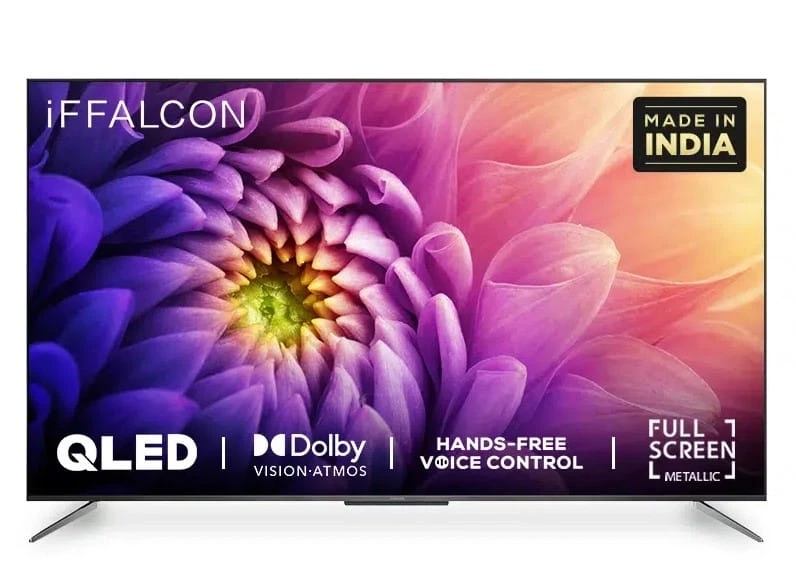In the ever-evolving world of television technology, the dilemma between Smart TV and Android TV continues to captivate consumers. As leading brands constantly innovate and introduce unique features in each category, the competition intensifies. While some users favor the exclusive features of Smart TVs, others opt for the convenience of Android TVs, leveraging the power of the Android operating system. Although both offer seamless online content streaming and visual experience on larger screens, there are notable distinctions between Smart TV and 4k Android TV.
In this blog, we will introduce you to the difference between the Smart TV and 4k UH LED Android TV to help you make an informed decision when choosing between them.
What is a Smart TV?
A Smart TV, often referred to as an internet TV, boasts exclusive features and additional programs facilitated through internet connectivity. Its operating system resembles that of smartphones and PCs. Smart TVs are pre-equipped with OTT apps like Netflix, YouTube, and Facebook. Moreover, a smart TV enables gaming, video watching, and movie streaming.
However, it\'s important to note that the operating system of a Smart TV cannot be upgraded, hence it limits access to the latest applications.
What is an Android TV?
An Android TV is a type of Smart TV with similar features like in-built apps and internet connectivity, but it sets itself apart through its utilization of the Android operating system, powered by Google. Unlike traditional Smart TVs, Android TVs provide access to the Google Play store, allowing users to download and update the latest app versions. Additionally, many Android TVs offer Chromecast compatibility and a built-in Google Assistant, elevating the overall TV viewing experience.
Today in the market, when you step out to buy an Android TV, you will come across the terms like 4k UHD LED Android TV. In simple terms, A 4K TV has 4K resolution, boasting 3,840 horizontal pixels and 2,160 vertical pixels, totaling approximately 8.3 million pixels. Product specifications for 4K TVs often display resolutions as "3840 x 2160.
The Smart 4k Android TV boasts a pixel count four times higher than conventional Full HD (1920 x 1080) TVs. This increased pixel density results in remarkably vivid and detailed picture quality, even when comparing TVs of the same size. The disparity becomes particularly noticeable with larger-screen TVs.
One more thing, 4K Resolution is a type of UHD resolution, where UHD means Ultra High Definition.
What is the difference between Smart TV and Android TV?
To determine which option is superior in the Smart TV vs UHD 4K Android TV battle, we\'ll compare them based on several key parameters:
1. Operating system:
Smart TV comes equipped with various operating systems, depending on the brand. In contrast, 4K Android TV runs on the Android OS, enhancing the overall experience by enabling easy control through an Android smartphone or smartwatch.
2. App support:
The best 4k Android TV stands out in terms of app availability. Thanks to Play Store support, it offers a vast array of apps at users\' fingertips. Smart TVs, on the other hand, provide access to only a limited selection of pre-installed apps, lacking the expansive app library of Android TVs.
3. Automatic updates:
4K UHD LED Android TV enjoys frequent firmware and app updates, facilitated by an active tech development community. In contrast, Smart TVs may receive infrequent updates, leading to an outdated TV OS after a few years.
4. Voice assistant:
The built-in Google voice assistant on UHD 4K Android TV sets them apart, allowing users to switch channels and search for content through voice commands. While some Smart TVs also offer voice control, additional devices like Alexa are often required.
5. Screen casting:
The best 4K Android TV excels in screen casting with the Chromecast feature, offering seamless mirroring of smartphones in high definition. Smart TVs may support screen mirroring, but the process can be less straightforward.
6. Navigation:
Smart TVs are known for their user-friendly interface and ease of navigation, making app-switching effortless. 4K UHD LED Android TV, with its ties to the Android ecosystem, may be more challenging for users less familiar with the platform.
Conclusion
In the dynamic realm of television technology, choosing between Smart TV and 4K Android TV remains a significant decision for consumers seeking an enriched viewing experience. While both options offer diverse features and functionalities, they possess unique attributes that cater to specific preferences and needs. Ultimately, the choice between Smart TV and Android TV depends on individual requirements and technical preferences.



